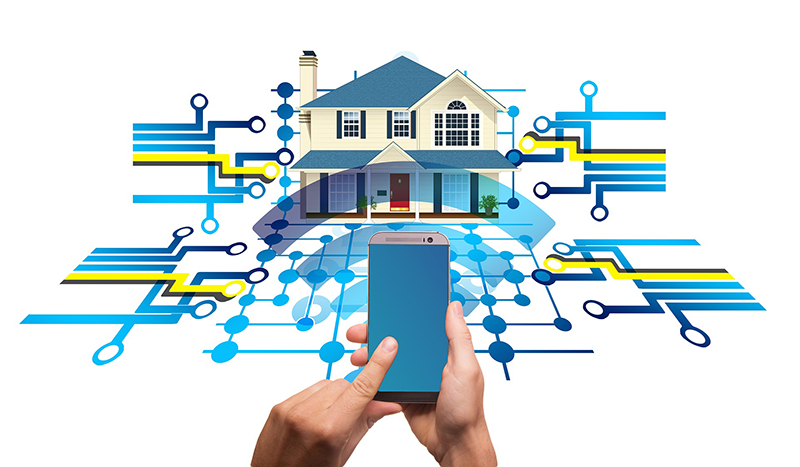
At the Coleman Institute for Cognitive Disabilities, we are committed to advancing technology solutions that improve the quality of life for people with cognitive disabilities. In 2024, we partnered with the state of Colorado on a groundbreaking project to introduce smart home technology in four group homes across the state. This initiative aims to enhance independence, safety, and well-being for residents with intellectual and developmental disabilities (IDD).
Our Smart Home Technology Solutions
We are implementing a variety of smart devices that offer practical benefits for individuals with disabilities. These include:
- Smart Hubs: Acting as the control center for all connected devices, smart hubs enable residents or caregivers to manage multiple devices from a single interface. This central control makes it easier for individuals with cognitive disabilities to operate lights, appliances, and other smart home features using simplified commands.
- Smart Speakers: Equipped with voice-activated assistants, these devices allow residents to control their environment, play music, set reminders, and access hands-free information. For individuals with limited mobility or cognitive impairments, smart speakers can provide greater independence and reduce reliance on caregivers for simple tasks.
- Smart Plugs: These adaptable outlets allow standard devices to be controlled remotely. For example, residents can safely manage appliances like fans, heaters, or kitchen tools through voice commands or mobile apps, improving safety and convenience.
- Smart Lamps: With features such as dimmable lighting, color customization, and voice control, smart lamps help create comfortable environments. Residents can adjust lighting to support their routines, reduce anxiety, and improve sleep quality.
- Smart TVs: Designed with user-friendly interfaces and voice control options, smart TVs provide accessible entertainment and social connection. They can be used to access content, join video calls, or display reminders and schedules to help residents stay organized.
- Motion Sensors: These devices improve safety by detecting movement and triggering alerts. They can notify caregivers of unusual activity patterns, such as residents wandering at night, helping to prevent accidents and ensure prompt support.
- Button Switches: These large, customizable switches provide an accessible way to control devices like lights or appliances. For residents who struggle with traditional switches or remotes, these intuitive controls offer a simple and effective solution.
Partnering with the State of Colorado
The Coleman Institute for Cognitive Disabilities is proud to partner with the Colorado Department of Human Services (CDHS) on an innovative smart home pilot project designed to enhance the quality of life for individuals with intellectual and developmental disabilities. Together, we are equipping four homes—two in Wheat Ridge and two in Pueblo—with smart home technologies that promote independence, increase staff efficiency, and create more personalized living environments.
The Coleman Institute brings expertise in technology selection, accessibility, and implementation, while CDHS provides in-depth knowledge of residential care operations and the unique needs of their residents. By combining our strengths, we are able to design solutions that are both technically effective and truly person-centered.
We also want to recognize and thank Amazon for their generous contribution of smart home equipment—including tablets, smart speakers, smart plugs, smart bulbs, and smart hubs—which has played a pivotal role in making this project possible. While all four homes feature Amazon technology, one Wheat Ridge home has been set up as a fully dedicated Amazon home, with every device running on Amazon’s ecosystem. This setup allows us to explore the benefits of a fully integrated platform and demonstrate how widely available consumer products can be adapted to meet the unique needs of people with cognitive disabilities.
This partnership reflects our shared commitment to creating environments that promote independence, safety, and quality of life. The lessons learned from this pilot will inform future strategies for using smart home technology in residential care settings across the state.
Please reach out to leslie.emery@cu.edu if you would like more information about smart home technology.




